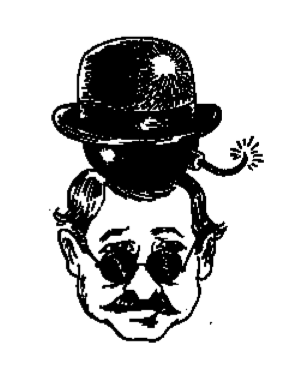There is a hazard to reading a lot of what might be categorized as “literary thrillers.” Oftentimes they’re so incident-rich that one’s eagerness to settle down with a quieter novel—one with little more propulsion than the cataloging of the pains of domesticity or the taking of minutes during the wordlessly complicated negotiations of long-term intimacy—sometimes feels diminished. Two books lie balanced on the arm of one’s sofa: the first will take a reader, via an international arms cartel funded by Macedonian separatists, to the coast of Libya, to the suburbs of Moscow, and on to the crowds of King David Street; the second will take a reader to the kitchen sinks and bedrooms of grieving souls who, chances are strong, are not terribly unlike ourselves. But one’s own kitchen sink awaits, and in the bedroom reclines a partner who might well ask if we have taken out the trash, changed the diaper, walked the dog. Why does this feel so familiar? Because, if one has selected the quieter book, one has been staring into a mirror of prose.
This is not to say literary fiction must confront The World. Its first duty is to its characters—their wants and inner lives—but if those characters inhabit a world of war and terror then surely it is the fiction writer’s obligation to make that world real. Just as surely this can go too far. A domestic novel as rich with worldly reverberation as Paula Fox’s Desperate Characters, published in 1970, has as its only overtly political touch a glimpsed poster of (an unnamed) George Wallace. And, it should be said, within a violent, frightening world there can be places of profound quiet and stillness untouched by what surrounds them. Let us see those places, too. We may need them even more.
Thus, in turbulent times, the writer of a certain kind of literary thriller is blessed with newfound assumptions of relevance. The fact is, though, many literary readers are still not inclined to think highly of literary thrillers. Such books can indeed come off as greed-driven works of impure artistic intention. We have now wandered into the gnarled woodlands of genre. So what is a “literary thriller”? There are various types: the urban literary thriller, such as Susanna Moore’s In the Cut; the gothic literary thriller, such as Denis Johnson’s Already Dead; the political literary thriller, most typically spy novels. This last sort of literary thriller—currently practiced at a more tuneful key by Alan Furst and at its dullest and flattest by multitudes—is the subspecies with which we will here concern ourselves. The typical political literary thriller has an uncomplicated recipe. It is mostly a...
You have reached your article limit
Sign up for a digital subscription and continue reading all new issues, plus our entire archives, for just $1.50/month.
Already a subscriber? Sign in





